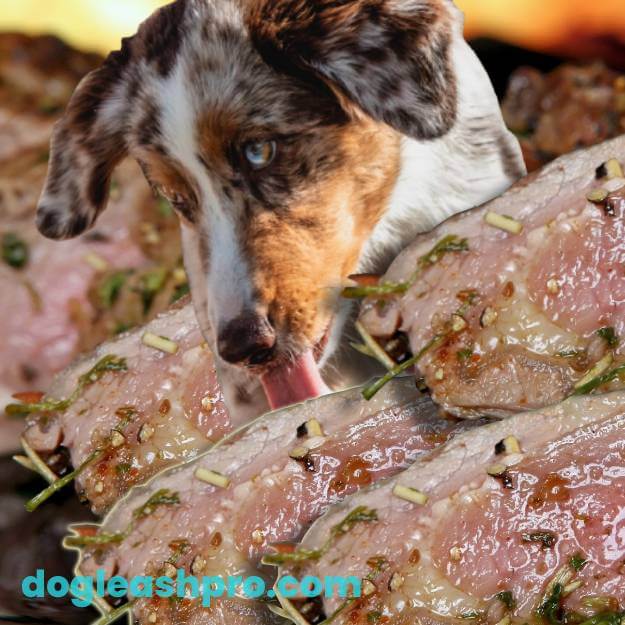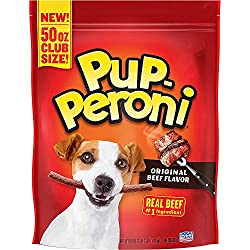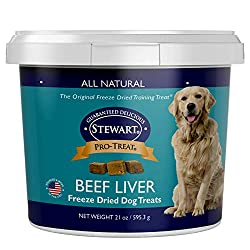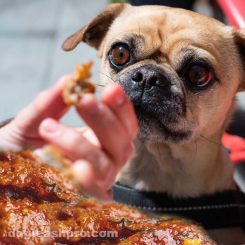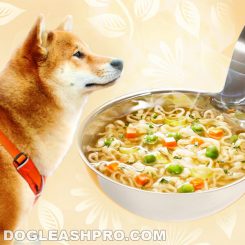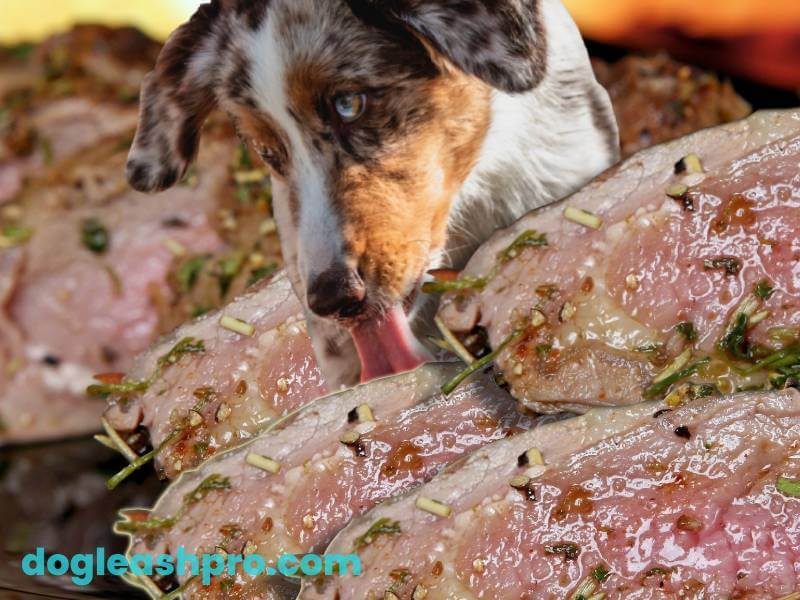
No, dogs should not eat Spoiled meat. Although the canine stomach is much more robust than humans, Spoiled meat contains harmful bacteria and harmful toxins that can still infect dogs. While the chances of dogs getting sick from eating Spoiled meat are less than humans, they are still prone to food poisoning if they eat too much of it.
Instead, it’s best to feed our pups freshly cooked vegetables and well-balanced healthy dog food.
Table of Contents
Is Spoiled meat bad for dogs?
Dogs have a much sturdier gut than humans. They can eat things unsafe for human consumption and be fine. However, the risk of parasites, bacteria, fungi, and other toxins is undeniably high in Spoiled meat.
Spoiled and moldy meat is a breeding ground for pathogens like E-coli, Clostridium botulinum, Penitrem-A, Salmonella, Staphylococcus, and others. Let’s discuss how these bacteria can negatively affect your canines.
- E-coli can cause colibacillosis in dogs, a disease of the lower intestine
- Clostridium botulinum causes Botulism, a disease that attacks the nervous system and can cause paralysis in dogs
- Penitrem-A is found in moldy meat and can cause seizures in dogs
- Salmonella can cause bloody diarrhea, loss of appetite, vomiting, and weakness in dogs.
- Staphylococcus aureus is also known as staph infection and can spread to humans from dogs
Can dogs get food poisoning from eating Spoiled meat?
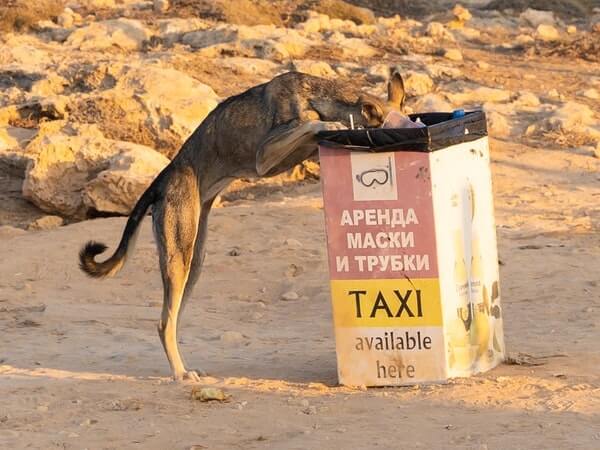
The most common cause of food poisoning among dogs is eating stale and rotten foods, including Spoiled meat. Symptoms of food poisoning can appear within a few hours to a few days after the dog has feasted on foul flesh. The most common symptoms include:
- Vomiting.
- Diarrhea.
In addition to the above two symptoms, your pooch may experience the following:
- Dehydration.
- Mild fever.
- Loss of bladder control.
- Abdominal pain.
- Excessive drooling.
- Nausea.
- Dizziness.
- Loss of appetite.
Among the nastiest diseases your dog can pick up from putrid meat is Botulism. This disease spreads quickly and can be hard to spot. Even though it is rare, Spoiled meat can contain Botulism bacteria. Some signs of Botulism include:
- Weakness.
- Shivering.
- Inflamed eyes.
- Constipation.
- Loss of coordination.
Severe cases of Botulism can lead to the following:
- Seizures.
- Paralysis.
Make sure to seek medical attention promptly as early diagnosis can save your four-legged friends from meeting a grim fate.
Fun Fact: Even fresh eggs can contain Salmonella, a bacteria that causes food poisoning. If you’re planning to make Egg salad, make sure you’re buying eggs from a refrigerated case or from a refrigerator. Open the carton and check to see that none of the shells are cracked before you bring it home.
Can dogs eat slightly Spoiled meat?
Dogs should be fine if they accidentally eat slightly Spoiled meat. A dog’s gut is strong enough to tolerate slightly rotten meat. If the meat is just a little over its expiration date, doesn’t look green or moldy, and doesn’t smell foul, your dog should be fine.
Can dogs eat Spoiled cooked meat?
No, dogs should not eat Spoiled cooked meat. In theory, cooking meat long enough eliminates the bacteria in it. However, once meat gets soiled, cooking it won’t necessarily make it safe to eat. Even if you manage to eliminate the bacteria by cooking the meat, the toxins they’ve already produced won’t go anywhere.
Can dogs eat Spoiled meat without getting sick?
A dog may not immediately get sick after eating Spoiled meat, but that doesn’t mean that you can feed them rotten meat regularly. Symptoms of food poisoning may take up to 6 days to appear.
If your pooch ate meat that wasn’t excessively rotten, moldy, or smelly, or if it was just past its “best before” date, your pup might not get sick at all. It also depends on how much soiled meat your dog ate.
What if my dog ate Spoiled meat from the trash?
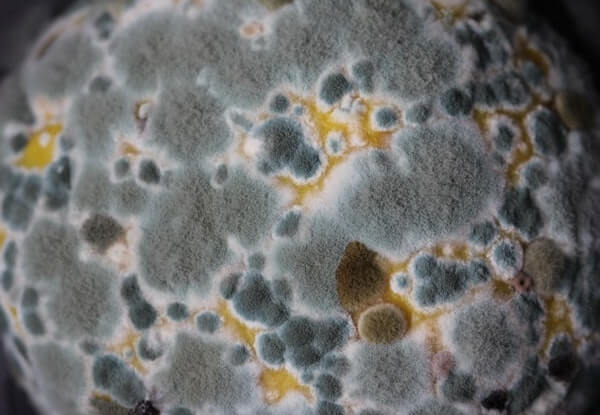
If you’ve chucked some rotten meat into the trash, chances are that it may still end up inside your dog’s stomach. As you know, it’s not uncommon for dogs to rummage through garbage and can eat all kinds of junk.
If your dog has eaten garbage meat, carefully monitor his condition for the next 24 hours. Watch for symptoms of food poisoning and keep your vet informed of his situation. What you can do is strictly feed him clean, fresh, and easy-to-digest food. Avoid feeding him anything dogs don’t naturally eat.
Vomiting and runny stools can drain the dog of water and put them at risk of dehydration. To prevent that, give your pooch lots of water to keep him hydrated.
If your pup doesn’t vomit after eating rotten meat, don’t try to force it yourself. Avoid giving your dogs any milk or food with dairy content because it can cause gastric issues for the dog’s already troubled tummy. Also, many dogs are lactose-intolerant so they lack the lactase enzyme to properly digest dairy products.
Treatment if your dog has food poisoning from Spoiled meat
If your dog shows signs of food poisoning, put them on a fast and only give them water. Initial symptoms of food poisoning include diarrhea and vomiting. This isn’t a cause for alarm, as it will let the tainted food leave the dog’s system naturally. If your pooch can’t keep the water down or vomits repeatedly, inform your vet immediately.
Once your dog’s stomach has expelled all the foul or toxic food, his condition should improve. If he is still vomiting after a few hours or has loose or runny stools after 24 hours, you’ll want to consult with your vet as soon as possible.
Your vet will usually administer anti-diarrhea and anti-vomiting medication to help the dog keep his food down during recovery.
If your canine seems weak or in pain, visit the vet and bring a stool sample. This will help the vet quickly determine the source of the problem. If the dog tests positive for Botulism, the vet may prescribe an antitoxin. To keep your dog’s energy up, he may be hooked to an IV.
Can dogs tell if meat is spoiled?
Dogs have highly sensitive noses that allow them to tell good food from rotten food. However, that doesn’t mean the dog won’t eat Spoiled meat. In fact, a dog might even prefer to eat meat that smells foul!
So, even though dogs can tell the difference between fresh and Spoiled meat, they don’t have the mental ability to tell which is good for them. If it looks like food to them, they will eat it!
How long does meat last before getting spoiled?
Uncooked meat left outside can rot very quickly. The warm temperature is ideal for bacteria and mold growth. To keep the meat from spoiling, either cook it when it’s fresh or put it somewhere cold like in the refrigerator. Storing meat at or below 40 degrees Fahrenheit temperature will prevent any microbial growth.
Refrigerated meat lasts longer than meat left out in the open. Exactly how long the meat lasts depends on the type of meat and the cut. Here’s how long each kind of meat stays fresh in the fridge:
- Uncooked chicken, seafood, and ground meat: for 1-2 days.
- Large cuts like steak, chops, and roasts: up to 5 days.
- Cooked meat: up to a week.
- Processed meat products like bacon, sausages, and hotdogs: up to a month.
If you want the meat to last even longer, put it in the freezer. Frozen meat can easily last for over a year.
Fun Fact: When it comes to meat products, they can rot very quickly at room temperature. In contrast, making dairy products like Sour cream or yogurt relies on warm room temperature so that the bacteria can do their job during the fermentation process.
What are some dog-friendly and healthy alternatives?

To prevent any unwanted food poisoning, always feed your dog fresh and cooked meat. The only downside to fresh meat over-processed meat like sausages, hotdogs, bacon, salami, and ham is its durability.
Processed meat doesn’t spoil easily. But when it comes to providing the highest nutritional value with minimum side effects, fresh meat has no parallel. Here are some healthy fresh meat options for your precious pups:
- Chicken is easy to digest and rich in protein. It is also available everywhere. To avoid risking salmonella, bake the chicken fully before feeding your canine friends.
- Beef: Dogs love beef, all cuts of it. You can mince it or prepare it whole. Beef is one of the most common ingredients in dog food and you can feed it to your pooch daily.
- Turkey contains all the benefits of chicken. But unlike chicken, it isn’t heavily farmed. This means they are mostly fed organic and natural diets.
- Fish: Salmon, herring, cod, and sardines are rich in omega-3 and other vital nutrients. While fish can be an excellent occasional meal, it shouldn’t be the only meat you feed your dog.
- Organ: Experts believe organs and offal should be a regular part of your dog’s diet. They provide high nutritional value while costing very little. Organ meat has a high-fat content so it is best suited for younger dogs.
If these fresh meats aren’t available, it’s always convenient to carry some healthy dog treats around the house. In particular, I treat my pups to the following tasty treats:
So, Can dogs eat Spoiled meat?
Even though dogs can digest slightly stale meat without getting sick, the risk of contracting diseases and ingesting toxins from Spoiled meat is just too high. To avoid putting your dog’s health in danger, it’s best to only feed them clean, cooked, and untainted meat.
Related Questions
By nature, dogs are hunters and scavengers. Their digestive tracts are so small that the bacteria don’t get time to thrive. Their stomach acidity is also very high, which immediately eliminates most microbes before they can reproduce.
However, generations of domestication have reduced this resistance to food poisoning in dogs. Even though most pet dogs can eat meat that is unfit for humans, excessively decayed, moldy, and foul meat can make dogs seriously ill.
As a general rule, any meat that is unfit for you is unfit for your dog to eat. However, if the meat isn’t smelly, sticky, discolored, or moldy, you may let your dog have it if he is asking for it. Avoid making it a regular thing, though.
Raw meat that has been left out in the open for a while will develop nasty bacteria, making it unfit for doggy consumption. Eating old raw meat can infect dogs with parasites and put them at risk of Botulism, a dangerous disease that attacks the dogs’ nervous systems.
Raw meat that was handled with unwashed hands can also contract all kinds of bacteria. The best way to make sure the meat is free from any pathogens is to cook it properly.
Meat that is visibly soiled or has mold on it can make your furry friend very sick. Rotten meat contains lots of nasty toxins, bacteria, and diseases. Letting your dogs feast on any stale food puts them at risk of food poisoning.
Chicken is a healthy and easy-to-digest source of protein for dogs. However, once the chicken spoils, the only place for it is the dumpster.
You can tell if chicken meat has rotted by its smell, color, and texture. If you feel the chicken is smelly, sticky, slimy, or has a weird color, toss it in the trash.
DISCLAIMER: THIS WEBSITE DOES NOT PROVIDE MEDICAL ADVICE
The information, including but not limited to, text, graphics, images and other material contained on this website are for informational purposes only. No material on this site is intended to be a substitute for professional veterinary advice, diagnosis, or treatment. Always seek the advice of your veterinarian or other qualified health care provider with any questions you may have regarding dietary needs.
Resources:
https://www.rd.com/article/pet-food-poisoning/
https://www.healthline.com/nutrition/ways-to-tell-if-ground-beef-is-bad

With over five years of specialized experience as an animal writer, my expertise lies in dog nutrition, health, behavior, grooming, and training. I am dedicated to delivering helpful and informative content that caters to the well-being of our furry friends. My primary goal is to empower pet owners with knowledge and ensure our canine companions thrive in health and happiness. In my free time, I love volunteering at local dog rescue centers.
